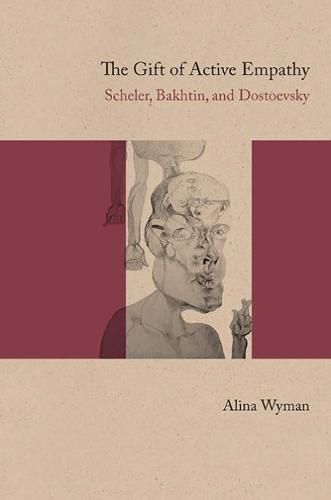Readings Newsletter
Become a Readings Member to make your shopping experience even easier.
Sign in or sign up for free!
You’re not far away from qualifying for FREE standard shipping within Australia
You’ve qualified for FREE standard shipping within Australia
The cart is loading…






This innovative study brings the early writings of Mikhail Bakhtin into conversation with Max Scheler and Fyodor Dostoevsky to explore the question of what makes emotional co-experiencing ethically and spiritually productive. In Problems of Dostoevsky’s Poetics, Bakhtin’s well-known concept of the dialogical partner expresses what he sees as the potential of human relationships in Dostoevsky’s work. But his earlier reflections on the ethical and aesthetic uses of empathy, in part inspired by Scheler’s philosophy, suggest a still more fundamental form of communication that operates as a basis for human togetherness in Dostoevsky. Applying this rich and previously neglected theoretical apparatus in a literary analysis, Wyman examines the obstacles to active empathy in Dostoevsky’s fictional world, considers the limitations and excesses of empathy, addresses the problem of frustrated love in The Idiot and Notes from Underground, and provides a fresh interpretation of two of Dostoevsky’s most iconic characters, Prince Myshkin and Alyosha Karamazov.
$9.00 standard shipping within Australia
FREE standard shipping within Australia for orders over $100.00
Express & International shipping calculated at checkout
This innovative study brings the early writings of Mikhail Bakhtin into conversation with Max Scheler and Fyodor Dostoevsky to explore the question of what makes emotional co-experiencing ethically and spiritually productive. In Problems of Dostoevsky’s Poetics, Bakhtin’s well-known concept of the dialogical partner expresses what he sees as the potential of human relationships in Dostoevsky’s work. But his earlier reflections on the ethical and aesthetic uses of empathy, in part inspired by Scheler’s philosophy, suggest a still more fundamental form of communication that operates as a basis for human togetherness in Dostoevsky. Applying this rich and previously neglected theoretical apparatus in a literary analysis, Wyman examines the obstacles to active empathy in Dostoevsky’s fictional world, considers the limitations and excesses of empathy, addresses the problem of frustrated love in The Idiot and Notes from Underground, and provides a fresh interpretation of two of Dostoevsky’s most iconic characters, Prince Myshkin and Alyosha Karamazov.